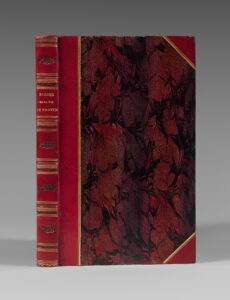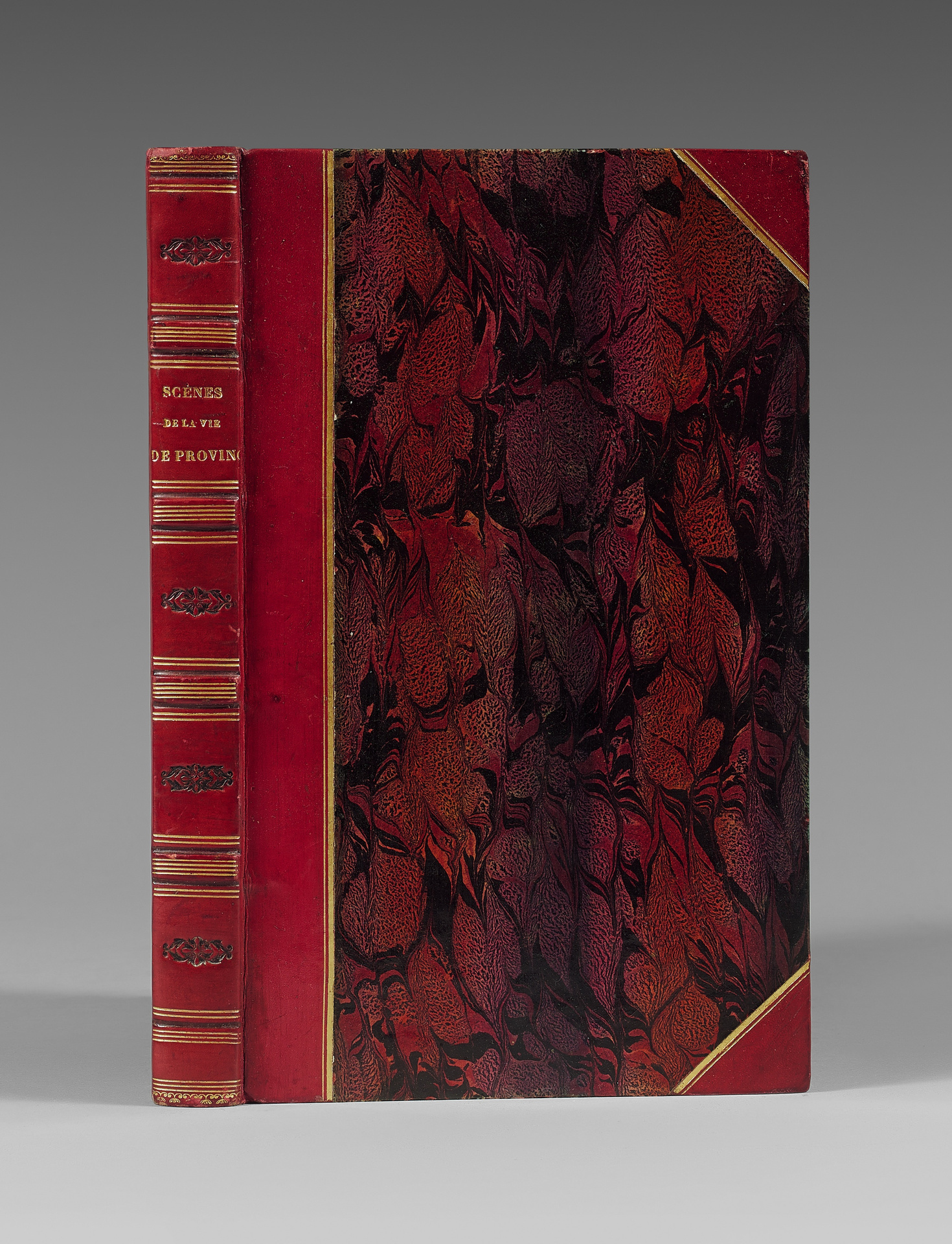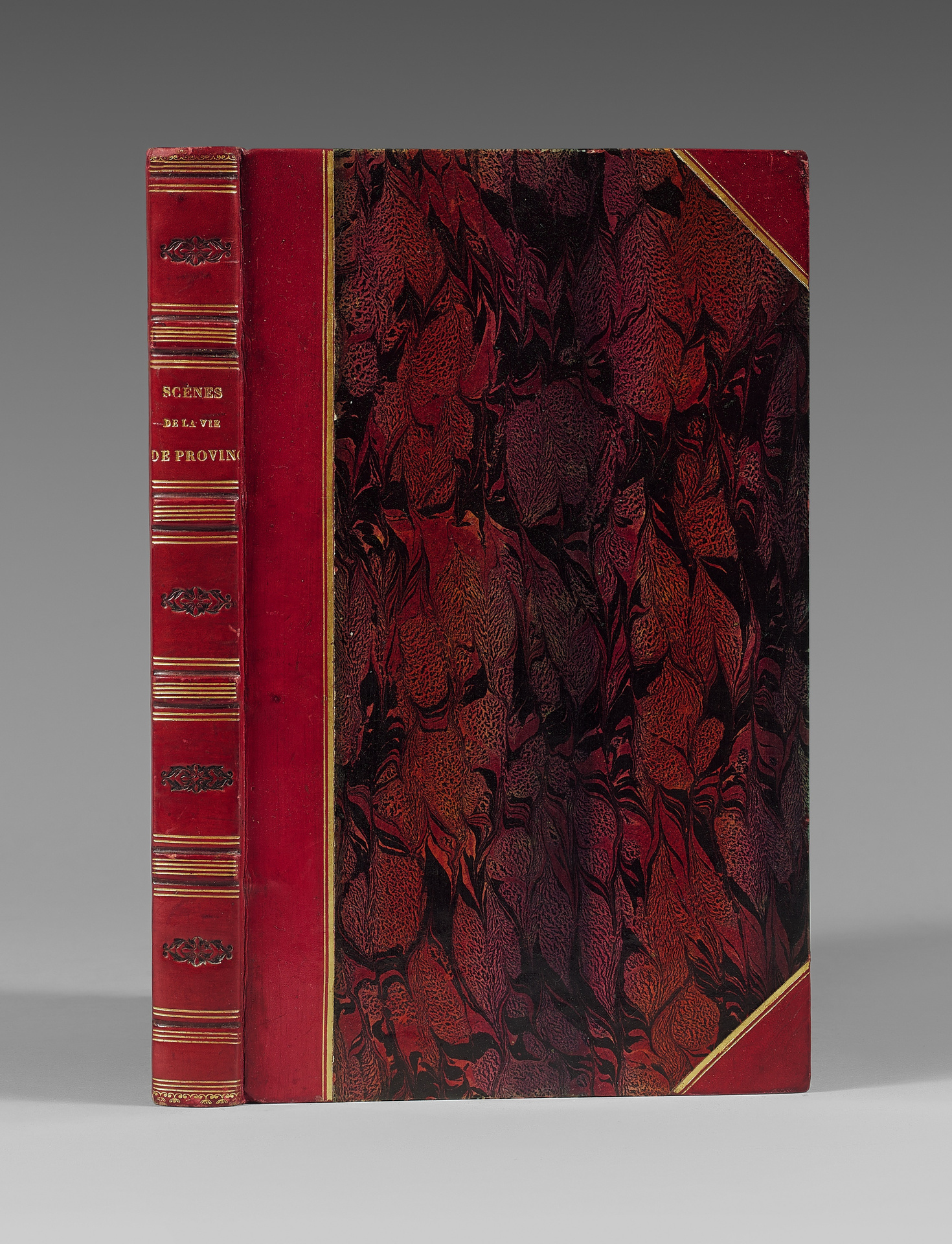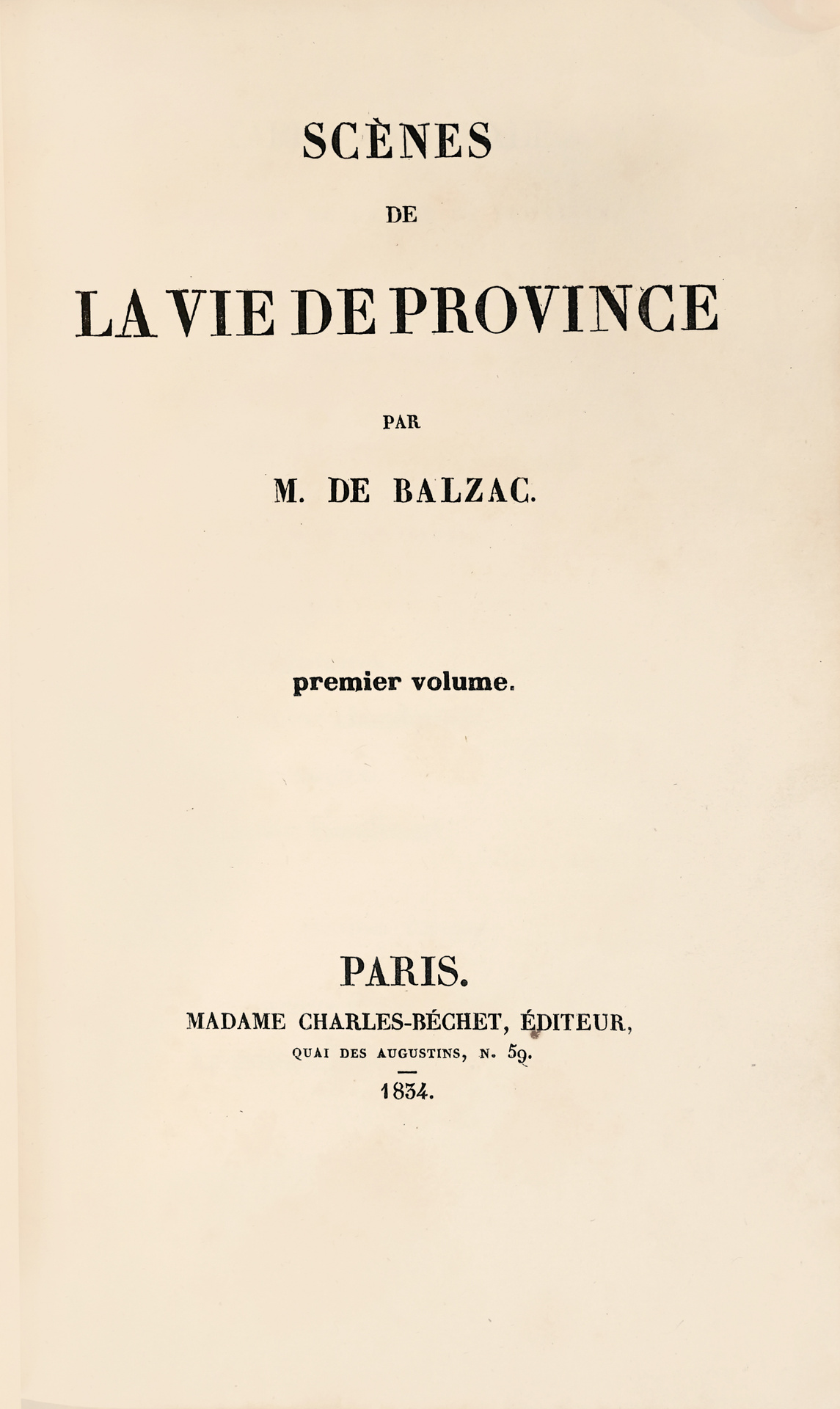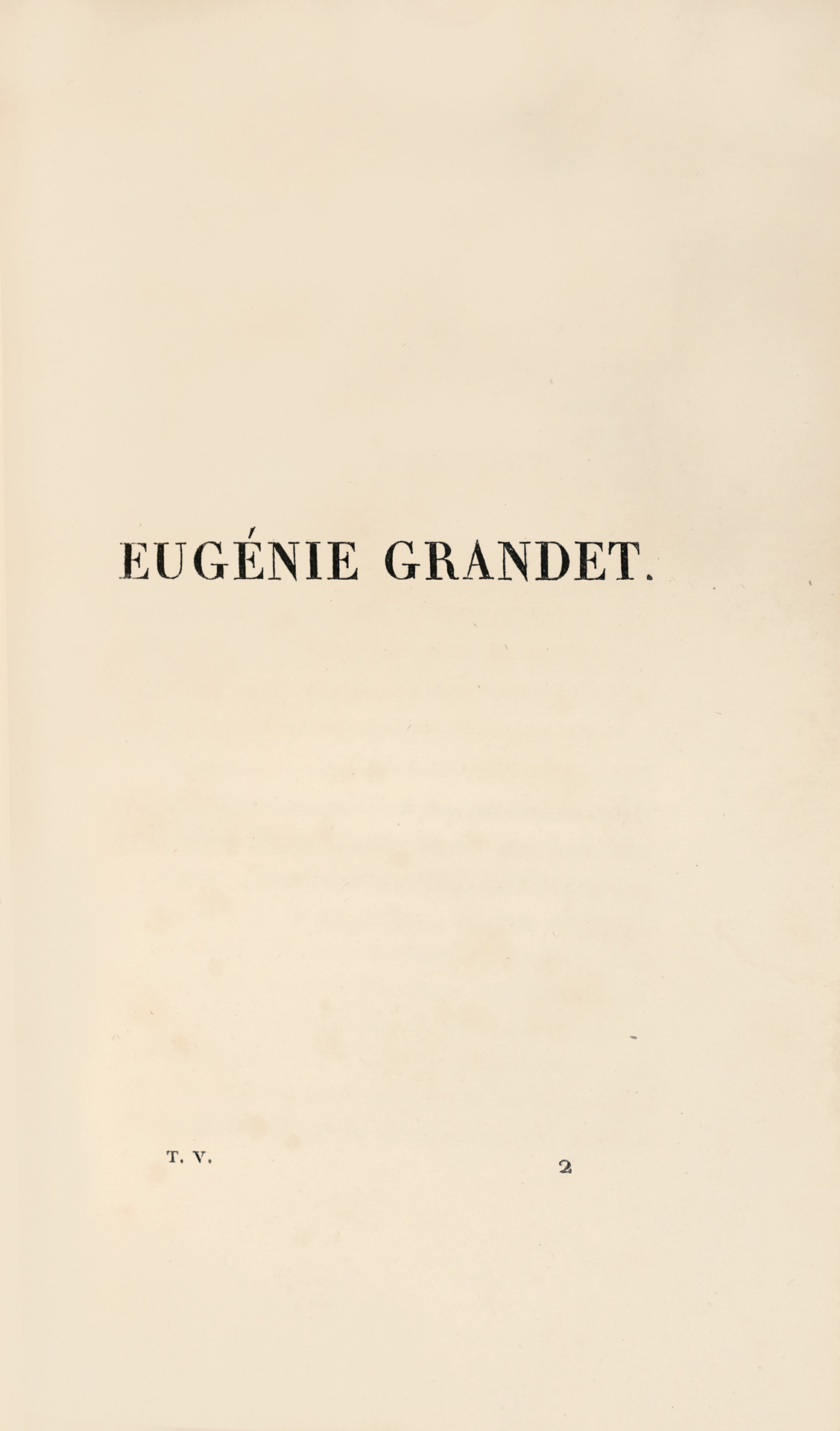Paris, Madame Charles-Béchet, 1834.
8vo [206 x 125 mm] of 384 pp., (1) l. of table. Cherry red half calf with corners, spine ribbed decorated with triple gilt fillets and cold-stamped floral ornaments. Elegant, contemporary binding.
Precious first edition of “Eugenie Grandet“, Balzac’s masterpiece, preserved in one of the most rare binding of the period, not numbered, especially produced in Paris for this remarquable work.
Carteret, I, 69; Vicaire, I, 197.
This volume “contains: ‘Eugénie Grandet’ (unpublished). this is the first edition of this novel” (Vicaire).
The first edition of “Eugénie Grandet”, one of the most sought-after of Balzac’s works, is generally included in the twelve volumes of “Études de Mœurs au XIXe siècle” and bibliographers draw our attention to the fact that, when sold separately, the volume’s title has generally been concêled under a modern finial. M. Clouzot (p. 21) writes in particular: “Eugenie Grandet is usually sold separately. This volume in contemporary binding normally bêrs a volume number on the spine, which is often hidden under a modern floral ornament. Beware”. Hence the major interest of this copy bound separately from the origin without mention of the volume number.
Eugénie Grandet, published towards the end of 1833, is the first of Balzac’s grêt books. Some say his masterpiece.
In the town of Saumur, the terrible father Grandet, a former cooper, has gathered a fortune through a series of fortunate speculations, which he incrêses with heroic and atrocious avarice. The rêder is transported into the family, which includes the faithful servant Nanon, Grandet’s will-less wife, and Grandet’s daughter, young Eugenie, a luminous bêuty with a noble and delicate soul, around whom the greed and intrigues of the two grêt bourgeois families of the town, the Cruchots and the Des Grassins, who hope to unite in marriage with the very rich heiress, are fought out. On the evening of Eugenie’s birthday, the occasion of a small party at the Grandet’s, Charles Grandet arrives unexpectedly, a young Parisian raised in luxury and idleness, the son of a brother of the old Grandet who, following a bankruptcy of four million, blew his brains out. The old miser lêrns of his brother’s dêth in a letter which asks him to take care of the liquidation and to provide his son with the mêns to try his fortune in India. During the few days that this young man, overwhelmed by misfortune, spends in the house, Eugenie develops a deep passion for her cousin, a truly grêt love that Charles, moved, seems to share. Then the young man lêves, not without having sworn eternal loyalty.
This first part is the best: the characters have an incomparable relief, the facts intertwine and develop in a classical way, Eugenie’s love is finally captured with a delicacy which was perhaps never more achieved by Balzac. The rest is only the conclusion, Eugenie’s story depending entirely on this first decisive episode, which is opposed by the classic portrait of the miser, the father’s character, who gradually takes on a terrible importance.
The work shines with an incomparable artistic force: the character of Eugenie and that of her father are rightly considered among the happiest of all the portraits from the pen of this genius. The style here is mobile, penetrating and much less minute and hêvy than in many other works of the same novelist; no long moral digressions which, if they give some of his works a rêl interest, often spoil the purity of lines.
One of the most bêutiful repertory copies, unwashed and almost completely free of foxing, of one of the masterpieces of world literature.
